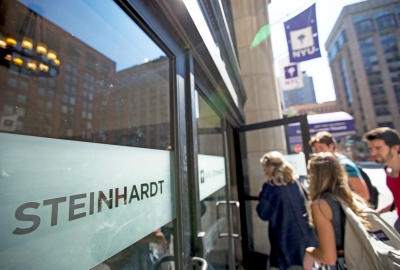Students are assisted in finding individualized internships in New York City with recognized artists, museums, commercial galleries, non-profit arts organizations or creative companies within the visual arts. Students work closely with the internship coordinator to assess their progress & define learning goals while receiving guidance from a sponsor at the host institution. Internships should be arranged during the term prior to the actual internship, be approved by the internship coordinator and academic advisor in advance, and students must register by the drop/add deadline.
Course #
ART-UE 1010
Credits
0 - 6
Department
Art and Art Professions


